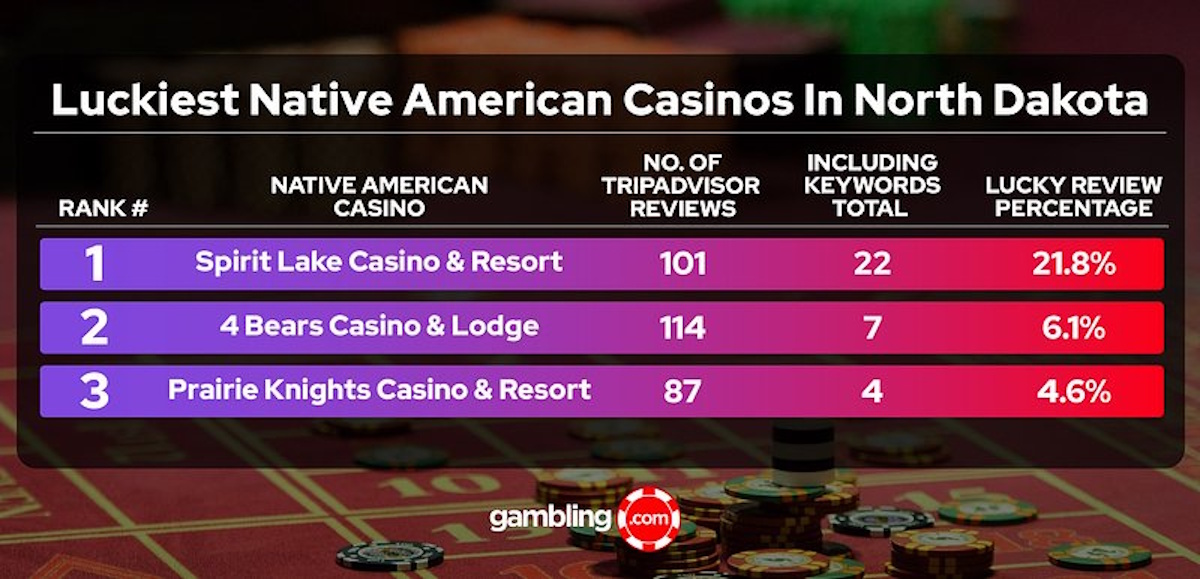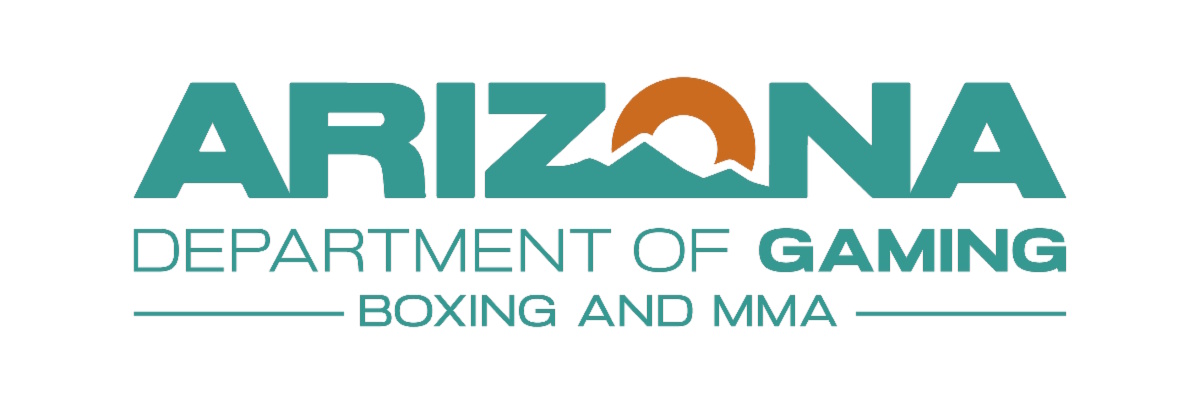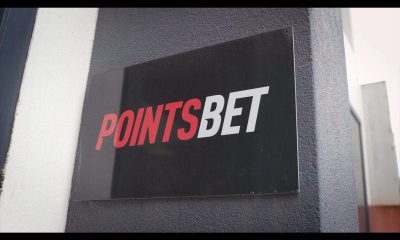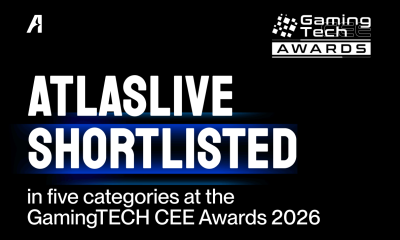Latest News
SoftSwiss moves to ReactJS for frontend development

SoftSwiss launched its very first White Label project on ReactJS – N1 Casino, moving to a next-generation frontend core application that is significantly quicker and more flexible in execution. Thanks to the new React-based frontend architecture, SoftSwiss clients’ websites are able to load faster and become more versatile, providing a better user experience.
Max Trafimovich, CCO at SoftSwiss, commented on this news: “SoftSwiss is always working hard on enhancing its products, striving to turn out the most user-friendly and appealing solutions on the market. We’re excited to introduce N1 as the first project out of many to be launched using the ReactJS framework. This marks a frontend technology shift for all of our product development units”.
Yaroslav Laptev, Deputy CEO of N1 Partners Casino & Betting Group, commented: “Thanks to the introduction of React technology, the processes for launching new projects have been greatly simplified. Furthermore, the release of new tools for user interaction has become much easier. From now on, we’re expecting that all our future endeavours will run only on this core application”.
React is one of the most popular technologies today, being truly the next-generation framework. It is considerably quicker, therefore enabling less traffic consumption for SoftSwiss Online Casino Platform end-users as well as increasing the overall performance and enhancing the user experience on online casino websites. Furthermore, the development teams will find the transition to React JS extremely straightforward and smooth due to the similar syntax for rendering.
Additionally, the fresh React-based frontend core is also functionally more favourable for SEO, which gives yet another edge to SoftSwiss-powered websites. Along with basic features common in, for instance, WordPress CMS such as editing page meta information, the core application works with more specific SEO tags and provides advanced features such as creating custom URLs for certain page sections.
React Core application also provides new functionality to quickly clone an already existing solution, significantly accelerating development process for a new client project as well as minimizing setup errors probability.
Finally, the move to this new framework will ensure more frequent releases of new frontend features available to SoftSwiss clients. The core application is designed in a way that makes adding new functionality more efficient and less time-consuming.
About SoftSwiss
SoftSwiss is an international tech brand supplying widely acclaimed, certified software solutions for managing iGaming operations. SoftSwiss holds a number of gaming licenses, providing a “one-stop-shop” white label solution by taking care of all technical, legal, and financial processes on behalf of its customers. The company has a vast product portfolio, which includes an Online Casino Platform, Game Aggregator with thousands of casino games, an affiliate platform, and a recently launched Sportsbook platform. In 2013 SoftSwiss was the first in the world to introduce a bitcoin-optimized online casino solution. The company has thus been regarded as the leading technical expert when it comes to the use of cryptocurrencies in online gaming.
Powered by WPeMatico
Canadian iGaming market
Hugo Casino Teams Up with CasinoCanada to Expand in Canada

Hugo Casino, a popular online gaming platform operated by Kawaii Partners, has officially partnered with CasinoCanada.com to strengthen its presence in the Canadian market. The collaboration will focus on editorial coverage, analytical reviews, and SEO-optimized content tailored for Canadian players.
Under this partnership, CasinoCanada will produce detailed reviews, comparison guides, and data-driven insights, aimed at delivering transparent, research-based evaluations of Hugo Casino’s platform. The content strategy is designed to attract high-quality, search-driven traffic, helping players make informed decisions while enhancing Hugo Casino’s digital visibility.
Eugene Ravdin, Head of PR at SEOBROTHERS, which operates CasinoCanada, commented:
“Partnering with Hugo Casino aligns with our strategy of working with operators who prioritize compliance, security, and quality user experiences. Hugo Casino has a strong operational foundation and clear product vision. Our goal is to provide objective, data-driven content that drives sustainable long-term traffic and measurable results.”
Hugo Casino operates under a Curacao license and offers a wide portfolio of online entertainment, including slots, table games, and a fully immersive Live Casino. Security is a priority, with advanced encryption safeguarding players’ personal and financial information. Customer support is available 24/7 via Live Chat and email.
Players can access over 10,000 casino games, featuring top titles from leading providers such as Pragmatic Play, Play’n GO, and Yggdrasil. Hugo Casino supports 10 fiat payment options and 12 cryptocurrencies, making deposits and withdrawals simple and convenient.
Kawaii Partners, launched in 2023, also operates Spinzen Casino, expanding its portfolio in the online gaming and affiliate marketing space.
This partnership with CasinoCanada highlights Hugo Casino’s commitment to transparency, high-quality content, and a growing Canadian audience.
The post Hugo Casino Teams Up with CasinoCanada to Expand in Canada appeared first on Eastern European Gaming | Global iGaming & Tech Intelligence Hub.
Gambling in the USA
Spirit Lake Casino & Resort Claims The Title Of North Dakota’s Luckiest Native American Casino

Native American casinos in North Dakota play a vital role in strengthening tribal economies and supporting communities across the state.
According to a study by Gambling.com, Spirit Lake Casino & Resort has been crowned as the Luckiest Native American Casino in North Dakota with a Lucky Review Percentage of 21.8%.
In #2 is the 4 Bears Casino & Lodge with a score of just 6.1% – the casino has over 700 machines to choose from along with stunning views of Lake Sakakawea.
In #3 we have the Prairie Knights Casino & Resort (4.6%). It has over 600 slot machines, an array of classic and modern table games, blackjack, bonus craps and roulette.
Native American casinos in North Dakota play a vital role in strengthening tribal economies and supporting communities across the state. They are operated by sovereign tribal nations, including the Spirit Lake Nation, the Turtle Mountain Band of Chippewa Indians, the Standing Rock Sioux Tribe, and the Mandan, Hidatsa and Arikara Nation.
Within the state, casinos provide high-quality entertainment while generating critical revenue for essential services – healthcare, education, housing, infrastructure and cultural preservation initiatives. They also continue to drive sustainable economic development while honoring the traditions and sovereignty of the tribes they represent.
Based on the clear importance and impact of Native American casinos in North Dakota, Gambling.com wanted to work out which one is the luckiest. To calculate this, the Gambling.com team analyzed Tripadvisor reviews of the four Native American casinos in the state for these four keywords: luck, lucky, win and winning.
We then calculated the percentage of reviews with “lucky” keywords that each casino received, before finally ranking them by their Lucky Review Percentage.
Spirit Lake Casino & Resort Is The Luckiest In North Dakota
Located on the scenic shores of Devils Lake, Spirit Lake Casino & Resort was established in 1996. The casino spans 49,000 square feet and serves as a vital part of the local economy, offering gaming, dining and entertainment.
Rooted in rich history and culture, the Spirit Lake Casino & Resort dominated our lucky rankings with a Lucky Review Percentage of 21.8%.
In #2 is the 4 Bears Casino & Lodge with a score of just 6.1% – the casino has over 700 machines to choose from along with stunning views of Lake Sakakawea. Finally, to finish the Top Three we have the Prairie Knights Casino & Resort (4.6%). It has over 600 slot machines, an array of classic and modern table games, blackjack, bonus craps and roulette.
The post Spirit Lake Casino & Resort Claims The Title Of North Dakota’s Luckiest Native American Casino appeared first on Eastern European Gaming | Global iGaming & Tech Intelligence Hub.
Compliance Updates
Arizona Division of Problem Gambling and the Arizona Lottery / Recognize March as Problem Gambling Awareness Month

Collaboration highlights self-screening quiz for residents as part of Gambling Disorder Screening Day on March 10
The Arizona Department of Gaming’s Division of Problem Gambling (Division) and the Arizona Lottery announced today that Governor Katie Hobbs has issued a new Proclamation recognizing March as Problem Gambling Awareness Month. Additionally, the Division and the Arizona Lottery recognize March 10 as Gambling Disorder Screening Day.
“Arizona is a longtime supporter of Problem Gambling Awareness Month – a national grassroots campaign that raises understanding and appreciation that gambling related harm is a community issue,” said Elise Mikkelsen, Division Director. “New this year, the National Council of Problem Gambling’s theme Caring Communities. Stronger Futures. reminds us that screening for problem gambling is here in Arizona – and it’s useful in connecting people to the knowledge and resources they need.”
“Responsible gaming is an important part of the Arizona Lottery’s commitment to players across the state,” said Alec Thomson, Executive Director of the Arizona Lottery. “During Problem Gambling Awareness Month, we are proud to highlight the resources available to Arizonans and the work being done to promote responsible play. Through our partnership with the Arizona Department of Gaming, Division of Problem Gambling, we continue to support education, awareness, and access to help for those who may need it.”
The majority of Arizonans – 61 percent – support the government working to increase awareness of problem gambling resources. Meanwhile, when seeing health providers, only seven percent of Arizonans report that they have been screened for, or asked about their gambling habits, compared to 50 percent being asked about substance use. An estimated three to four percent of Arizona residents age 21+ are predicted to manifest a current gambling disorder – a term used to describe persistent and recurrent problem gambling behavior leading to clinically significant impairment or distress.*
Arizonans can take a self-screening quiz directly on the Division’s website: (problemgambling.az.gov/resources/self-screening-quiz). The quiz is designed to take only a few minutes and uses the responses to generate information and resources on possible next steps – including state subsidized treatment available from a list of qualified health and treatment providers. Gambling can take many forms, such as lottery, casino gaming, sports betting, bingo, raffles, office pools, and poker.
Held the second Tuesday of every March, Gambling Disorder Screening Day represents an international movement by the Cambridge Health Alliance, Division of Addiction that encourages provider-level and community-level knowledge about gambling disorder. It advocates that health screens for problem gambling are a useful tool to identify and start addressing the issue.
In problem gambling awareness, prevention is also important. The Arizona Lottery uses consumer and retail marketing to spark education and engagement while drawing awareness to problem gambling resources – particularly the free, 24/7 availability of immediate help, and the availability of qualified, problem gambling trained support professionals.
According to the Division and the Lottery, key ways to get effective and immediate help for those experiencing problem gambling are:
- Texting NEXTSTEP to 53342
- Using the chat function at problemgambling.az.gov
- Calling 1-800-NEXT-STEP
- Calling a trained, state contracted provider listed (problemgambling.az.gov/treatment-counseling/treatment-providers) – simply mention you are seeking support through the Division of Problem Gambling to qualify for state subsidized treatment resources
To join the awareness effort, access the official toolkit here: LINK. The toolkit has pre-packaged social media copy and creative assets designed for businesses, state agencies, and residents to amplify the issue across a range of audiences. The Division and the Lottery encourages others to spread awareness in their organizations and communities.
To learn more about Arizona’s sustainable continuum of services and education that reduces the impact of problem gambling, please visit problemgambling.az.gov.
*Marotta, J., Yamagata, G., & Reohr, P. (2023). Gambling Behaviors, Attitudes, and Experiences among Arizona Adult Residents. Phoenix, AZ: Arizona Department of Gaming.
*According to the Cambridge Health Alliance, Division on Addiction, persons with gambling disorder experience exhibit at least four of these behaviors:
- Needs to gamble with increasing amounts of money in order to achieve the desired excitement.
- Is restless or irritable when attempting to cut down or stop gambling.
- Has made repeated unsuccessful efforts to control, cut back, or stop gambling.
- Is often preoccupied with gambling (e.g., having persistent thoughts of reliving past gambling experiences, thinking of ways to get money with which to gamble).
- Often gambles when feeling distressed (e.g., helpless, guilty, anxious, depressed).
- After losing money gambling, often returns another day to get even (“chasing” one’s losses).
- Lies to conceal the extent of involvement with gambling.
- Has jeopardized or lost a significant relationship, job, or educational or career opportunity because of gambling.
- Relies on others to provide money to relieve desperate financial situations caused by gambling.
The post Arizona Division of Problem Gambling and the Arizona Lottery / Recognize March as Problem Gambling Awareness Month appeared first on Eastern European Gaming | Global iGaming & Tech Intelligence Hub.
-

 Comatel6 days ago
Comatel6 days agoCOMATEL CELEBRARÁ UNA FIESTA PARA CIENTOS DE OPERADORES TRAS FINALIZAR EL PRIMER DÍA DE LA FERIA ESPAÑOLA, INTERAZAR
-

 Fotini Matthaiou7 days ago
Fotini Matthaiou7 days agoOctavian Gaming Titles Go Live with Novibet in Mexico
-

 Compliance Updates7 days ago
Compliance Updates7 days agoSpillemyndigheden: New Guidance on Responsible Gambling
-

 Amusnet7 days ago
Amusnet7 days agoAmusnet Introduces its “Jackpot Cards Plus” Island at Casino Adjara
-

 Fast Track7 days ago
Fast Track7 days agoFast Track Spark Lands in São Paulo for Advanced Retention Workshop
-

 Betting and Gaming Council7 days ago
Betting and Gaming Council7 days agoBGC: Government Tax Hike Boost for Black Market
-

 Canada4 days ago
Canada4 days agoPointsBet Canada to Contest Proposed 5-Day Suspension by AGCO
-

 Atlaslive6 days ago
Atlaslive6 days agoAtlaslive Shortlisted in Five Categories at GamingTECH CEE Awards 2026



















